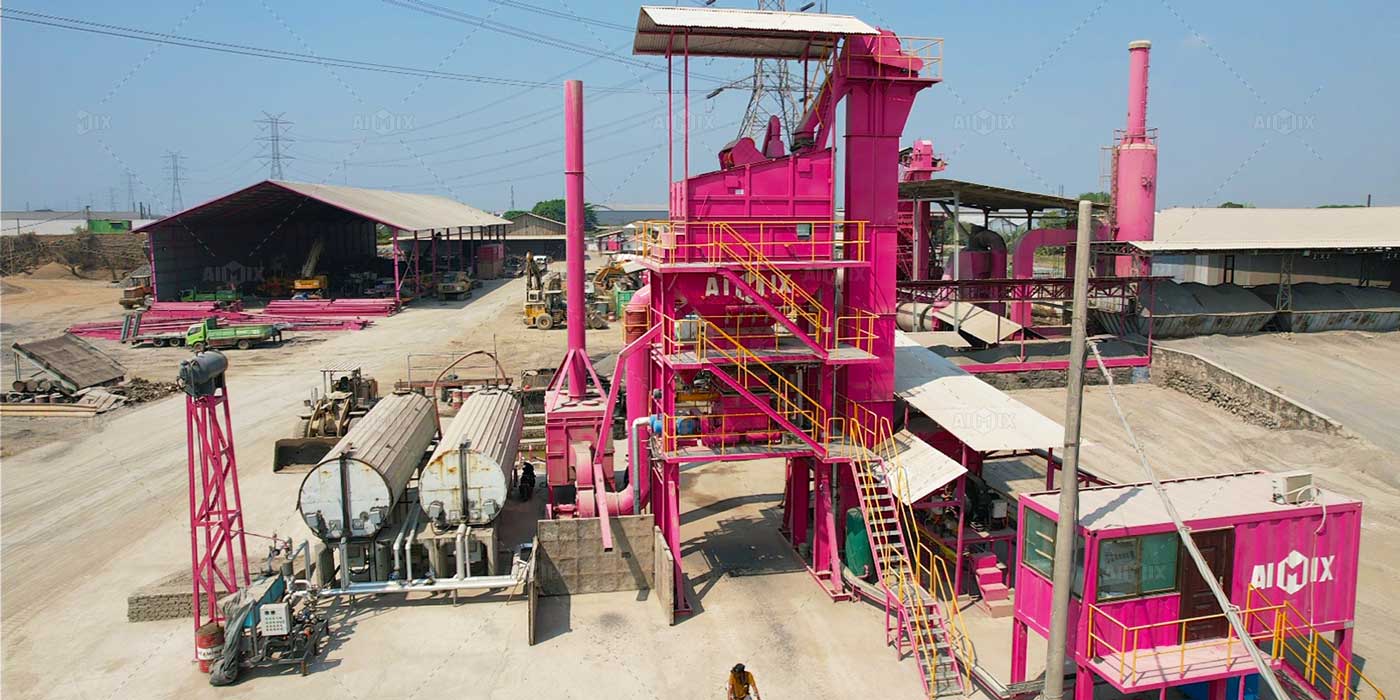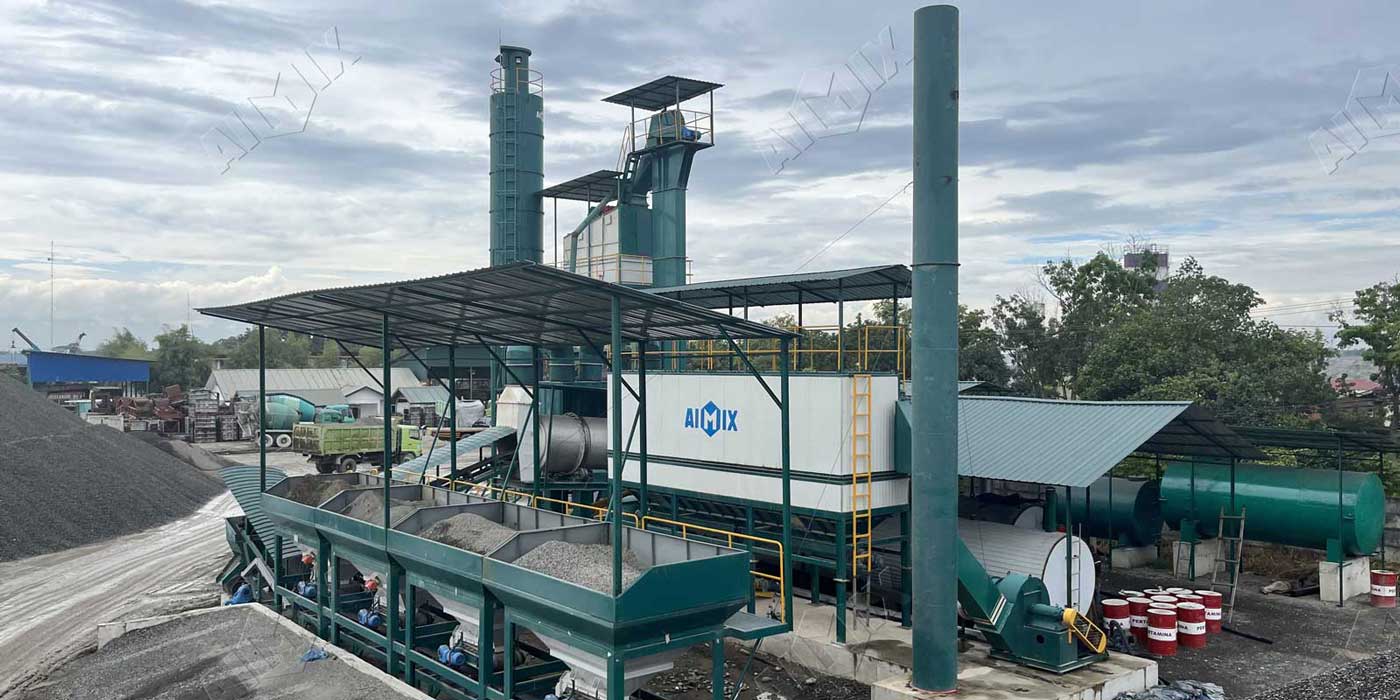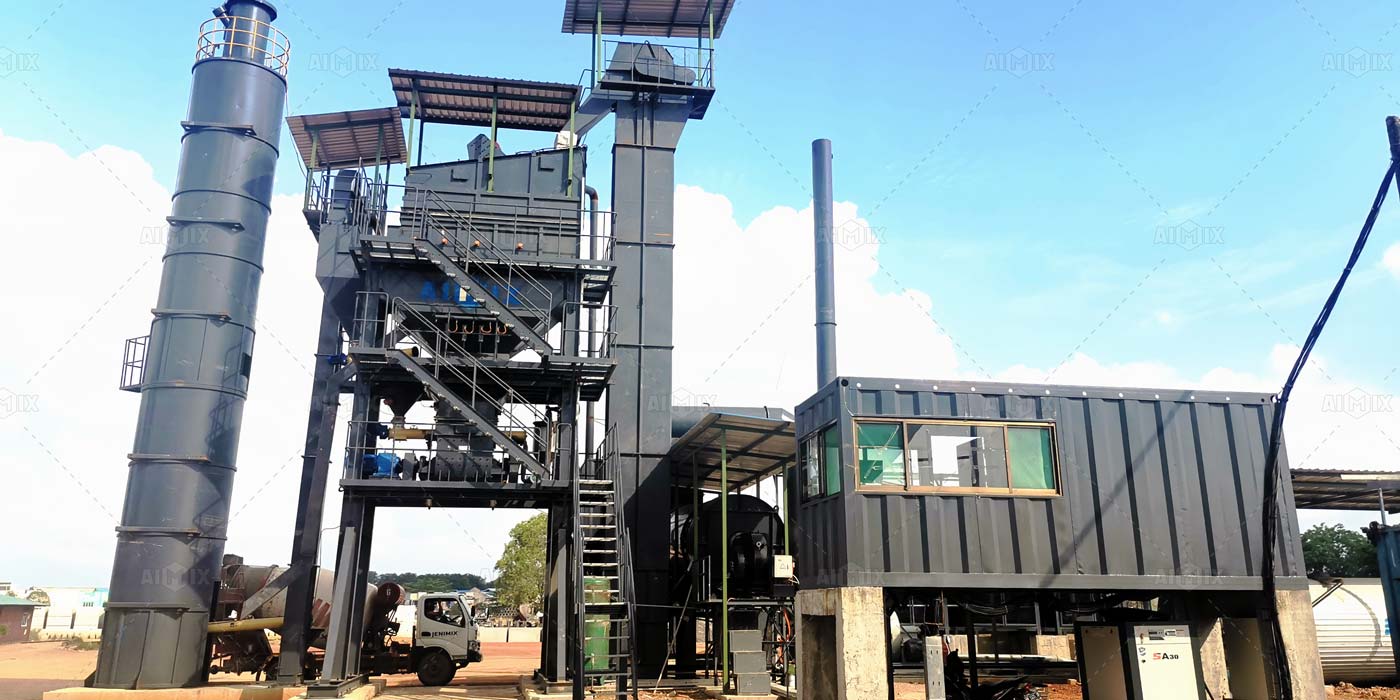Learn whether an 80 t/h asphalt batching plant can meet the demands of building a 10 km asphalt road in Bali. Explore practical insights, project scenarios, and professional recommendations.

When planning a road project in Bali, one of the first questions is about asphalt supply. Many contractors wonder if 80 t/h asphalt batch plants can provide enough material for a 10 km asphalt road. This decision is important, because it affects your budget, timeline, and project quality. In this article, I will share insights from real construction practices, and help you evaluate whether this capacity matches your needs.

To answer this question, we first need to estimate how much asphalt is required. A typical two-lane asphalt road with a 7-meter width and 5 cm thickness uses about 110–120 tons of asphalt per kilometer. For 10 km, this means you need around 1,100–1,200 tons of asphalt.
Once you know the total requirement, you can compare it with the plant’s production rate. This gives you a realistic idea of how long the plant needs to run to complete the job.
An asphalt batching plant with an output of 80 tons per hour produces 640 tons in an 8-hour shift. For 1,200 tons of asphalt, the plant would need less than two full working days. This calculation shows that an 80 t/h hot mix asphalt plant is technically sufficient for a 10 km road in Bali.
However, projects are rarely that simple. Weather, transport, and on-site paving speed all play roles. Therefore, while the math works, you should also think about practical factors that influence daily progress.

Asphalt plant capacity is important, but it is not the only factor. You should also consider logistics. Bali’s roads can be narrow, and asphalt must be delivered quickly to avoid cooling. This means the plant location and truck fleet size are just as critical as plant capacity.
In addition, project deadlines can influence your decision. If the schedule is tight, a higher-capacity plant may reduce risks. On the other hand, if the timeline is flexible, the 80 t/h plant can balance cost and efficiency well.
An 80 t/h asphalt batching plant is suitable when you work on small to medium road projects. It fits well if you handle rural roads, local streets, or projects under 20 km. It also works when you want to control investment cost and avoid idle capacity.
In Bali, many road projects are medium in scale. An 80 t/h asphalt mixing plant portable or stationary often strikes the right balance between output and cost. It ensures steady supply without overwhelming logistics.

If your project covers more than 20 km, or if you must finish in a very short period, you may need a 120 t/h or 160 t/h plant. Larger plants allow you to produce more asphalt per shift, which helps when deadlines are strict or traffic disruption must be minimized.
Moreover, if you expect continuous projects after the first one, investing in higher capacity can make long-term sense. It ensures your plant remains useful for future jobs.
Before you decide, calculate your exact asphalt demand, evaluate your deadline, and think about transportation routes. Bali’s climate and traffic patterns can affect asphalt delivery. This means you should choose a plant size that not only fits your project but also your logistics strategy.
In many cases, contractors prefer to start with an 80 t/h plant and upgrade later. This step-by-step approach helps reduce initial investment risk, while still completing projects on time.

Choosing the right asphalt batching plant is more than comparing numbers. You need a solution that matches your project scale, location, and schedule. That is where we can help. We supply asphalt batching plants in Bali and across Indonesia, with professional advice, local service, and engineer support.
If you are planning a 10 km road in Bali and want to know whether an 80 t/h plant is right for you, contact us today. We can provide tailored recommendations, detailed plant specifications, and cost-effective solutions to make your project a success.